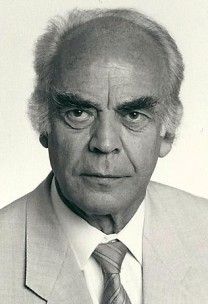Klaus Volprecht was born in 1930 in Trachtenberg, Silesia. He grew up in a small village near the Czech and the Slovakian border. His father was a teacher. Volprecht developed an early interest in History, Geography and in foreign cultures.
At the age of fifteen, in the last month of World War II, Volprecht was forced to join the German Army. He became a prisoner of war and was disbanded in 1947. Three years later, Volprecht finished school in Eisenach, a Thuringian town in the Soviet occupied zone. His family had been evacuated to the western part of Germany in 1946, and Volprecht followed them in 1950.
In 195, Volprecht took up his studies at the university in Cologne, where he not only attended courses in German Studies and Theater Studies but also in Sociology and Psychology. Due to the recommendation by one his professors, Volprecht visited lectures in Anthropology, e.g., on material culture and several world regions. At the Department of Social and Cultural Anthropology and the Rautenstrauch Joest-Museum Martin Heydrich and Friedrich Funke were among his teachers. Volprecht also took part in several excursion trips, e.g., to Greece. Furthermore, he became a student assistant in 1954.
In 1960, Volprecht graduated and eventually took up an assistant position at the very department in Cologne, where Helmut Petri held a professorship since 1958. Volprecht not only worked in the library but also organized and conducted a series of student research trips, e.g., to Scandinavia.
In 1963, Volprecht took up a position at the Institute for the Scientific Film (Institut für den wissenschaftlichen Film, IWF) in Göttingen. Moreover, he supervised a couple of field researches and participated in some of them. One of them led him to Thailand in 1964/65, where he collected ethnographic material and worked with new media like video and audio.
After a short period at the German Development Service (Deutscher Entwicklungsdienst, DED) Volprecht took up a position at the Rautenstrauch Joest-Museum in Cologne in 1966. He eventually became head of the Africa-Department, where he worked for the next decades. During this time Volprecht was not only responsible for cataloguing newly purchased collections but continuously organized a large number of exhibitions. He also collaborated with several museums throughout the world.
Moreover, Volprecht gave lectures at the Institute for African Studies in Cologne, where he held an honorary professorship. He retired in 1992.
Short Portrait: Klaus Volprecht

Klaus Volprecht
 further information
further information

